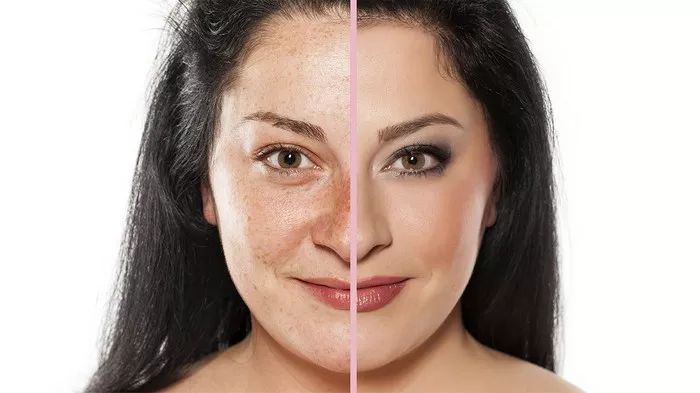Freckles are small, dark spots that appear on the skin, often in areas that are exposed to the sun. They are most commonly associated with fair-skinned individuals, but black people can also have freckles. In this article, we will explore why black people have freckles, the role of melanin in freckle formation, and the genetics behind freckles.
Melanin and Freckle Formation
Melanin is a pigment that gives color to the skin, hair, and eyes. It is produced by cells called melanocytes, which are located in the epidermis, or outer layer of the skin. Melanin helps to protect the skin from the harmful effects of the sun’s UV rays, but it can also lead to freckle formation.
Freckles are caused by an increase in melanin production in certain areas of the skin. When the skin is exposed to the sun, the melanocytes produce more melanin in an attempt to protect the skin from damage. This can lead to the formation of freckles, which are clusters of melanin in the skin.
Why Do Black People Have Freckles?
Black people have freckles for the same reason that fair-skinned individuals have freckles: an increase in melanin production in certain areas of the skin. However, freckles may be less visible on black skin due to the higher levels of melanin present in the skin.
In addition to sun exposure, freckles can also be caused by genetics. Certain genes have been linked to freckle formation, including the MC1R gene. This gene is responsible for producing a protein called melanocortin 1 receptor, which plays a role in melanin production. Variations in the MC1R gene can lead to an increase in freckle formation.
Genetics and Freckle Formation
Freckle formation is influenced by both environmental and genetic factors. While sun exposure is the primary cause of freckles, genetics can also play a role. The MC1R gene is just one of many genes that have been linked to freckle formation.
Other genes that may play a role in freckle formation include the ASIP gene, which is involved in the regulation of melanin production, and the SLC45A2 gene, which is involved in the transport of melanin to the skin. Variations in these genes can lead to an increase in freckle formation.
Conclusion
Black people can have freckles due to an increase in melanin production in certain areas of the skin. Freckles are caused by sun exposure and genetics, and certain genes, such as the MC1R gene, have been linked to freckle formation. While freckles are generally harmless, they can be a sign of sun damage and should be monitored. It’s important to protect your skin from the sun by wearing sunscreen and protective clothing, regardless of your skin color or whether you have freckles.
FAQs
What causes freckles on black skin?
Freckles on black skin are typically caused by the overproduction of melanin, the pigment responsible for skin color. Although less common than in lighter skin tones, freckles can still develop due to sun exposure or genetics. In darker skin, freckles may appear as small, flat spots that are darker than the surrounding skin.
What race has a lot of freckles?
Freckles are more commonly associated with individuals of Caucasian descent, particularly those with fair skin, red or blonde hair, and light eyes. However, freckles can occur in people of any race or ethnicity, although they may be less noticeable in individuals with darker skin tones.
Are freckles a result of sun damage?
Yes, freckles can be a result of sun exposure. When the skin is exposed to sunlight, melanocytes (cells that produce melanin) can become overactive, leading to the formation of freckles. UV radiation triggers melanin production as a defense mechanism against sun damage, resulting in the appearance of freckles on sun-exposed areas of the skin.
Why do foreigners have freckles?
Freckles can occur in individuals of any nationality or ethnicity, regardless of whether they are considered “foreigners” or not. The development of freckles is primarily influenced by genetics and sun exposure rather than nationality. People with fair skin who are exposed to sunlight without adequate protection are more likely to develop freckles, regardless of their nationality or geographic location.


